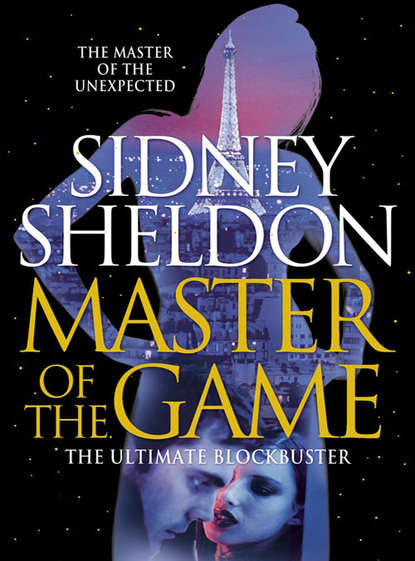По всем вопросам обращайтесь на: info@litportal.ru
(©) 2003-2025.
✖
Master of the Game
Автор
Год написания книги
2018
Настройки чтения
Размер шрифта
Высота строк
Поля
Mr van der Merwe, I’m the person you’re looking for. Believe me, sir, I’ll work night and day. I’ll bring you back more diamonds than you can count.
And he was finished before he had even started. You have two choices, Jamie told himself. You can go on or you can stay here and die … and die … and die …
The words echoed endlessly in his head. You can take one more step, Jamie thought. Come on, Jamie boy. One more step. One more step …
Two days later Jamie McGregor stumbled into the village of Magerdam. The sunburn had long since become infected and his body oozed blood and sera. Both eyes were swollen almost completely shut. He collapsed in the middle of the street, a pile of crumpled clothes holding him together. When sympathetic diggers tried to relieve him of his backpack, Jamie fought them with what little strength he had left, raving deliriously. ‘No! Get away from my diamonds. Get away from my diamonds …’
He awakened in a small, bare room three days later, naked except for the bandages that covered his body. The first thing he saw when he opened his eyes was a buxom, middle-aged woman seated at the side of his cot.
‘Wh – ?’ His voice was a croak. He could not get the words out.
‘Easy, dear. You’ve been sick.’ She gently lifted his swathed head and gave him a sip of water from a tin cup.
Jamie managed to prop himself up on one elbow. ‘Where – ?’ He swallowed and tried again. ‘Where am I?’
‘You’re in Magerdam. I’m Alice Jardine. This is my boarding-house. You’re going to be fine. You just need a good rest. Now lie back.’
Jamie remembered the strangers who tried to take his backpack away, and he was filled with panic. ‘My things, where – ?’ He tried to rise from the cot, but the woman’s gentle voice stopped him.
‘Everything’s safe. Not to worry, son.’ She pointed to his backpack in a corner of the room.
Jamie lay back on the clean white sheets. I got here. I made it. Everything is going to be all right now.
Alice Jardine was a blessing, not only to Jamie McGregor, but to half of Magerdam. In that mining town filled with adventurers, all sharing the same dream, she fed them, nursed them, encouraged them. She was an Englishwoman who had come to South Africa with her husband, when he decided to give up his teaching job in Leeds and join the diamond rush. He had died of fever three weeks after they arrived, but she had decided to stay on. The miners had become the children she never had.
She kept Jamie in bed for four more days, feeding him, changing his bandages and helping him regain his strength. By the fifth day, Jamie was ready to get up.
‘I want you to know how grateful I am to you, Mrs Jardine. I can’t pay you anything. Not yet. But you’ll have a big diamond from me one day soon. That’s a promise from Jamie McGregor.’
She smiled at the intensity of the handsome young boy. He was still twenty pounds too thin, and his grey eyes were filled with the horror he had been through, but there was a strength about him, a determination that was awesome. He’s different from the others, Mrs Jardine thought.
Jamie, dressed in his freshly washed clothes, went out to explore the town. It was Klipdrift on a smaller scale. There were the same tents and wagons and dusty streets, the flimsily built shops and the crowds of prospectors. As Jamie passed a saloon, he heard a roar from inside and entered. A noisy crowd had gathered around a red-shirted Irishman.
‘What’s going on?’ Jamie asked.
‘He’s going to wet his find.’
‘He’s what?’
‘He struck it rich today, so he stands treat for the whole saloon. He pays me for as much liquor as a saloon-full of thirsty men can swallow.’
Jamie joined in a conversation with several disgruntled diggers sitting at a round table.
‘Where you from, McGregor?’
‘Scotland.’
‘Well, I don’t know what horseshit they fed you in Scotland, but there ain’t enough diamonds in this fuckin’ country to pay expenses.’
They talked of other camps: Gong Gong, Forlorn Hope, Delports, Poormans Kopje, Sixpenny Rush …
The diggers all told the same story – of months doing the back-breaking work of moving boulders, digging into the hard soil and squatting over the riverbank sifting the dirt for diamonds. Each day a few diamonds were found; not enough to make a man rich, but enough to keep his dreams alive. The mood of the town was a strange mixture of optimism and pessimism. The optimists were arriving; the pessimists were leaving.
Jamie knew which side he was on.
He approached the red-shirted Irishman, now bleary-eyed with drink, and showed him Van der Merwe’s map.
The man glanced at it and tossed it back to Jamie. ‘Worthless. That whole area’s been picked over. If I was you, I’d try Bad Hope.’
Jamie could not believe it. Van der Merwe’s map was what had brought him there, the lodestar that was going to make him rich.
Another digger said, ‘Head for Colesberg. That’s where they’re findin’ diamonds, son.’
‘Gilfillans Kop – that’s the place to dig.’
‘You’ll try Moonlight Rush, if you want my opinion.’
At supper that night, Alice Jardine said, ‘Jamie, one place is as big a gamble as another. Pick your own spot, dig in your pickaxe and pray. That’s all these other experts are doing.’
After a night of sleepless self-debate, Jamie decided he would forget Van der Merwe’s map. Against everyone’s advice, he decided to head east, along the Modder River. The following morning Jamie said goodbye to Mrs Jardine and set off.
He walked for three days and two nights, and when he came to a likely-looking spot, he set up his small tent. Huge boulders lay along both sides of the riverbank, and Jamie, using thick branches as levers, laboriously moved them out of the way to get at the gravel that lay beneath.
He dug from dawn until dusk, looking for the yellow clay or the blue diamondiferous soil that would tell him he had found a diamond pipe. But the earth was barren. He dug for a week without finding a single stone. At the end of the week, he moved on.
One day as he walked along, he saw in the distance what looked like a silver house, glowing dazzlingly in the sun. I’m going blind, Jamie thought. But as he got closer, he saw that he was approaching a village, and all the houses seemed to be made of silver. Crowds of Indian men, women and children dressed in rags swarmed through the streets. Jamie stared in amazement. The silver houses glistening in the sun were made of tin jam pots, flattened out, fastened together and nailed over the crude shacks. He walked on, and an hour later, when he looked back, he could still see the glow of the village. It was a sight he never forgot.
Jamie kept moving north. He followed the riverbank where the diamonds might be, digging until his arms refused to lift the heavy pick, then sifting the wet gravel through the hand sieve. When it got dark, he slept as though drugged.
At the end of the second week, he moved upstream again, just north of a small settlement called Paardspan. He stopped near a bend in the river and fixed himself a meal of carbonaatje, grilled on a spit over a wood fire, and hot tea, then sat in front of his tent, looking up at the wheeling stars in the vast sky. He had not seen a human being in two weeks, and an eddy of loneliness washed over him. What the hell am I doing here? he wondered. Sitting in the middle of a blasted wilderness like a bloody fool, killing myself breaking rocks and digging up dirt? I was better off at the farm. Come Saturday, if I don’t find a diamond, I’m going home. He looked up at the uncaring stars and yelled, ‘Do you hear me, damn you?’ Oh, Jesus, he thought, I’m losing my mind.
Jamie sat there, idly sifting the sand through his fingers. They closed on a large stone, and he looked at it a moment, then threw it away. He had seen a thousand worthless stones like it in the past weeks. What was it Van der Merwe had called them? Schlenters. Yet, there was something about this one that belatedly caught Jamie’s attention. He rose, went over to it and picked it up. It was much larger than the other stones and of an odd shape. He rubbed some of the dirt off it against the leg of his trousers and examined it more closely. It looked like a diamond. The only thing that made Jamie doubt his senses was the size of it. It was almost as large as a hen’s egg. Oh, God. If it is a diamond … He suddenly had difficulty breathing. He grabbed his lantern and began searching the ground around him. In fifteen minutes he had found four more like it. None of them was as large as the first one, but they were large enough to fill him with a wild excitement.
He was up before dawn, digging like a madman, and by noon he had found half a dozen more diamonds. He spent the next week feverishly digging up diamonds and burying them at night in a safe place where no passers-by could find them. There were fresh diamonds every day, and as Jamie watched his fortune pile up, he was filled with an ineffable joy. Only half of this treasure was his, but it was enough to make him rich beyond anything he had ever dared to dream.
At the end of the week, Jamie made a note on his map and staked out his claim by carefully marking the boundaries with his pick. He dug up his hidden treasure, carefully stored it deep down in his backpack and headed back to Magerdam.
The sign outside the small building read: DIAMANT KOOPER.
Jamie walked into the office, a small, airless room, and he was filled with a sudden sense of trepidation. He had heard dozens of stories of prospectors who had found diamonds that had turned out to be worthless stones. What if I’m wrong? What if –?
The assayer was seated at a cluttered desk in the tiny office. ‘Somethin’ I can do for you?’
Jamie took a deep breath. ‘Yes, sir. I would like to have these valued, please.’
Under the watchful eye of the assayer, Jamie started laying the stones on his desk. When he was finished, there was a total of twenty-seven and the assayer was gazing at them in astonishment.
‘Where – where did you find these?’

















